Marketing Mistakes is a recurring series from Campaign Monitor about the biggest email or digital marketing goofs made by various thought leaders across the industry.
As these leaders share some hard-won wisdom from early in their careers, the rest of us have the opportunity to learn from their mistakes without the accompanying costly consequences.
In this series, we’ll cover the mistakes people have made, how they fixed them, and what they learned in order to make us all better digital marketers.
Marketing Mistakes with Randle Browning, content consultant
Randle Browning works as a freelance content consultant, helping others—particularly those in the tech industry—create and optimize their content strategy. From SEO to branding to managing content teams, Randle has revolutionized every aspect of companies’ content strategies, helping build their brands and grow their businesses.
With her background in tech and writing, her skills are invaluable to tech companies and startups just wading into the world of content marketing.
However, even experts learn as they go.
Randle’s big mistake
A few years ago, Randle worked as the Head of Content at a SaaS company, leading a team of writers, social media experts, and SEO specialists. Her second time leading a content team at a tech company, she was excited to be on board at a fast-growing startup.
But she was also anxious to live up to her new role.
While she doesn’t have one major mistake that cost her and the company, she did make a series of tiny mistakes that built on each other to create problems for her and her team.
The mistake: Death by a thousand tasks
“When I first started my role,” Randle says, “I had a million ideas and questions, but I was also eager to please and reluctant to rock the boat or shake up how the team already did things.”
So, instead of taking the time she needed to get up to speed, she jumped in right away. While her intentions were good, she ended up saying “yes” to almost everything her superiors threw at her before mapping out a strategy she felt confident in.
Ultimately, she started saying yes without having a plan and roadmap in place with clear goals and milestones to track her team’s progress.
Good intentions, poor execution
Jumping in right away wasn’t fair to the company who’d just given her the job, either, since they’d hired her to have expert opinions!
I got stretched thin working on campaigns and delivering copy, and that distracted me from growing the content program the way I wanted to.
When you’re excited and ready to get to work—especially when you start a new position—it can be tempting to start tackling projects right away. But suddenly, you realize you’re buried under work that doesn’t lead you, your team, or your company in the right direction.
Takeaway: Small mistakes—even things that don’t initially seem like mistakes—can accumulate and become a problem for you and your business over time.
But still, it wasn’t all bad
Saying yes to a lot of different projects wasn’t a constant problem and it definitely wasn’t all bad for Randle. What she learned during that time helped her build a consulting business, and she’s still proud of what she accomplished in that role, as well as the amazing team she grew and worked with during her time with the company.
We had some major wins, such as a project defining user personas for use across the company, an SEO overhaul that doubled our organic traffic, massive growth on our Instagram and YouTube without ads, plus a huge library of video courses for our customers.
Takeaway: Even when you’re making mistakes, you’re still building projects and a career to be proud of; don’t let the disappointments distract from your accomplishments.
The consequences: Undermining your own success
Even with all the good she and her team accomplished, her “say yes” approach undercut her own goals in a few ways. She and her team ended up working on campaigns that were good for the company but slowed down their own projects in the long run.
It also meant she didn’t prioritize hiring for her team. To get specific, she wishes she’d hired a full-time copywriter and a social media intern to help one of the most prolific content creators on the team.
I still believe it would have been transformative for the team and the whole marketing department.
Takeaway: When you manage a team, you have to be the one who fights for your own projects and goals to ensure your team reaches its full potential.
Playing it safe
Randle also says she wishes she’d been more willing to put herself on the line and attempt riskier projects that might not have worked. Riskier projects (like creating a bigger library of free courses to generate leads, investing more heavily in video, and attempting bigger partnerships with other brands) offer greater reward and satisfaction for the people who work on them.
Takeaway: Riskier projects are intimidating, take a lot of work, and a lot of confidence—even if you don’t necessarily always feel confident in what you’re doing—but they offer not only a larger reward, but also a larger capacity to help you learn and grow as a marketer and in your career.
How it happened
Randle says that, partly, her own imposter syndrome allowed these small mistakes to accumulate. She wanted to do well, and worried too much about living up to expectations.
However, a lot of what enabled these mistakes had to do with the state of the organization. They were a busy startup, and everyone was long on excitement but short on time. They had to do what they could to help projects succeed without undercutting the company’s bottom line.
In that atmosphere, a perfectionist like me is in a sticky spot. If you have a long-term vision, you have to be willing to say ‘no’ to other things and possibly cause some disappointment or friction in the short-term.
If you manage a team at a startup that’s always in go-go-go mode, sticking by your ideas (and preserving your team’s sanity) is a real skill.
Takeaway: Sometimes prioritizing long-term goals means having to stand up to superiors and even your own team in order to preserve everyone’s talents and time, but ultimately, you and your company will be better off down the road.
The cost of always saying yes
“I was so stressed out! I felt the dueling pressures of keeping my own team happy and cared for, plus delivering on all we’d promised to other teams,” Randle tells us.
Imagine needing to write copy for 9 sales emails, review your employee’s video, edit a blog post draft, and get on a call with that SEO consultant. It’s hard to prioritize and easy to feel like you’re always playing catch-up.
In her opinion, overcommitting allowed the rest of the marketing team to become reliant on the content team to deliver content and copy for sales campaigns, etc. This was a major bottleneck and blocker for projects across teams.
Ultimately, saying yes established habits and protocols that hurt not only her team, but others as well.
Takeaway: It’s difficult to stay sane and deliver work that lives up to your full potential when you’re always trying to dig yourself out of a mountain of work; saying no keeps the mountain of work bearable.
The solution: Prioritize the work you can do and defend it
If the work is important enough, hire for it
Before Randle left the company to work for herself, they’d already started to set some changes in motion. For one thing, she talked to her superiors about the problem, and they agreed they needed to make some marketing hires to take some of the workload off the content team. They also came up with a short-term plan to hire consultants to pick up loose ends.
Having my supervisors’ support in working with outside consultants was a huge lifesaver.
They hired copywriters for specific projects, outsourced other content, and even worked with virtual assistants to check off time-sucking tasks.
Having these new people in place allowed Randle’s team to focus on what they did best.
Takeaway: When the work is important, hiring good people is crucial and worth the investment.
Personal growth
This experience also encouraged Randle to take a big step in her career: “I ended up leaving my full-time role to fulfill a dream of going solo!”
“I became a freelance content consultant, where I take on finite and specific projects.”
Sometimes that’s delivering SEO content, other times it’s doing content strategy for an early-stage startup, and sometimes it’s coaching other entrepreneurs on their brand and content. Whatever it is, she practices saying no to the tasks that aren’t worth her time, allowing her to do the work she loves without getting overwhelmed.
Takeaway: Mistakes lead to growth that translates across jobs and even across industries, but what matters most is what you glean from it and how you let it shape you in your career and your daily life.
The lesson: Trust thyself
Go with your gut
“I learned to trust my instincts!” When starting a new role, it’s incredibly important to get up to speed without diving into projects too early, especially ones that could suck you away from important goals: growing the team in a smart way and planning out a long-term strategy and KPIs.
Now, Randle sets expectations with clients about what is within scope for a project from the beginning, and she also checks her own tendency to say “yes” to client requests without offering her advice first.
After all, they hired me to guide them based on my experience and expertise.
Takeaway: You’ve been hired because of your expertise, which means your superiors or your clients trust you: Make sure that you feel the same way about yourself and are willing to defend your own value when appropriate.
Her advice? Be honest and transparent.
It’s okay to make mistakes when you start a new role. And it’s okay to say that too much is on your plate.
“If you think that some of the work you’re doing is keeping you from being effective and really growing the company, talk to your boss.”
Show them the results you could get with a few tweaks, and give them ideas for how workflow changes, etc. could benefit you and the organization.
Takeaway: Be up front and honest when you make mistakes and when you feel overwhelmed: After all, the people who hire you want to see you succeed.
Wrap up
When you start a new job or even when you take that daring step to strike out on your own, it’s understandable that you want to say “yes” to everything that gets thrown at you. You’re excited and you want to show that you’re willing to work and what you’re capable of.
But that desire to say yes can undermine your own success if you aren’t careful.
From burnout to having to rush your work, you’ll eventually find that you and your team aren’t producing your best work. Not to mention, you’ll probably end up stressed and overwhelmed like Randle.
Instead, take on projects with discretion and never be afraid or intimidated to tell your boss when something needs to change. Ultimately, you are the expert and only you are responsible for protecting the integrity of your work, your career, and your team.
Read more Marketing Mistakes >>
Want to share your experience as a part of the Marketing Mistakes series? Submit a guest post and include Marketing Mistakes as your topic. If we end up publishing your post, we’ll let you know. *All posts are subject to our guidelines and we retain the right to edit your post to fit our guidelines and voice.






